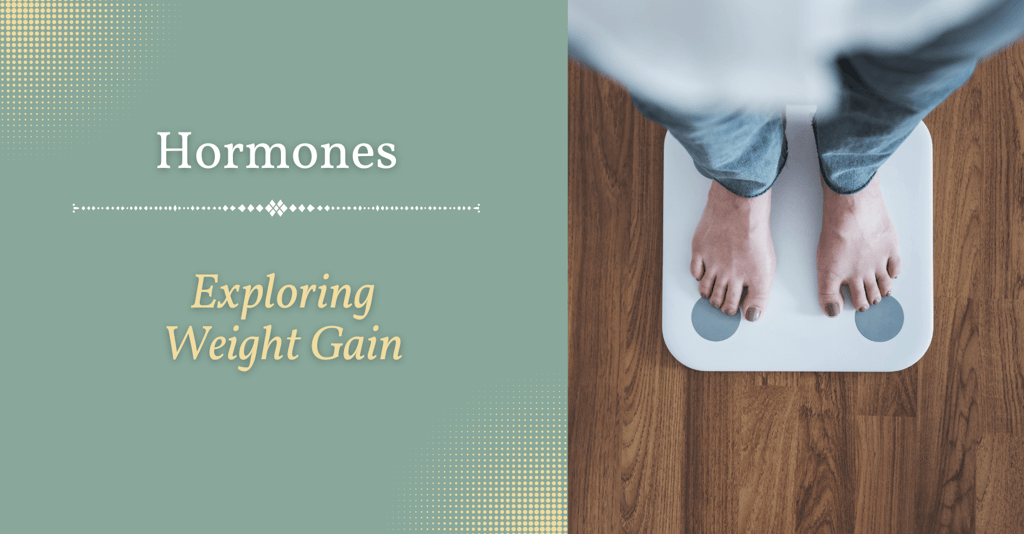Add your promotional text...
Weight Gain and Hormones: What You Need to Know
4/4/20242 min read


Weight gain is a complex topic influenced by various factors, and one often overlooked aspect is the role of hormones. Hormones are chemical messengers in our bodies, regulating a wide array of bodily functions, including metabolism, appetite, and fat storage. Understanding how hormones can affect weight gain is crucial for making informed decisions about our health.
Hormones and Weight Regulation
1. Insulin: Known primarily for its role in blood sugar regulation, insulin also plays a part in fat metabolism. When insulin levels are high, such as after a meal rich in carbohydrates, the body is more inclined to store excess calories as fat.
2. Cortisol: Referred to as the "stress hormone," cortisol is released in response to stress. Chronic stress can lead to consistently high cortisol levels, which may increase appetite and promote fat storage, particularly in the abdominal area.
3. Leptin: This hormone is produced by fat cells and is responsible for signaling to the brain that you are full. Leptin resistance can develop, where the brain doesn't respond to its signals, potentially leading to overeating and weight gain.
4. Ghrelin: Often referred to as the "hunger hormone," ghrelin stimulates appetite. Higher levels of ghrelin can lead to increased calorie intake and, consequently, weight gain.
5. Estrogen and Testosterone: These sex hormones are involved in fat distribution. Lower estrogen levels in women, particularly during menopause, can lead to weight gain, especially around the abdomen. In men, lower testosterone levels can contribute to increased body fat and decreased muscle mass.
Medical Conditions and Hormonal Weight Gain
1. Hypothyroidism: A condition where the thyroid gland doesn't produce enough thyroid hormone. This can lead to a slower metabolism, making it easier to gain weight and harder to lose it.
2. Polycystic Ovary Syndrome (PCOS): Common in women of reproductive age, PCOS is characterized by hormonal imbalances, insulin resistance, and often weight gain, especially around the abdomen.
3. Cushing's Syndrome: This rare condition occurs when the body is exposed to high levels of cortisol for an extended period. Weight gain, particularly in the face, upper back, and abdomen (often called "moon face" and "buffalo hump"), is a common symptom.
Tips for Managing Hormonal Weight Gain
Balanced Diet: Eating a diet rich in whole foods, fruits, vegetables, lean proteins, and healthy fats can help regulate hormones related to metabolism and appetite.
Regular Exercise: Physical activity is crucial for maintaining a healthy weight and can help regulate hormones like insulin and cortisol.
Stress Management: Techniques such as yoga, meditation, deep breathing exercises, and adequate sleep can help lower cortisol levels.
Medical Evaluation: If you suspect a hormonal imbalance, it's essential to consult with a healthcare provider. They can perform tests to identify any underlying conditions and develop a personalized treatment plan.
Hormone Replacement Therapy (HRT): In cases where hormonal imbalances are significant, such as menopause or hypothyroidism, HRT may be recommended under the guidance of a healthcare professional.
If you have any questions or need some assistance, feel free to submit a comment or send us a message here.
In Conclusion
While hormones can indeed influence weight gain, they are just one piece of the puzzle. A healthy lifestyle that includes a balanced diet, regular exercise, stress management, and medical oversight when needed, can all contribute to maintaining a healthy weight. Understanding how hormones work in the body empowers us to make informed choices for our overall well-being. If you're concerned about hormonal weight gain, reach out to a healthcare provider for guidance tailored to your individual needs.
